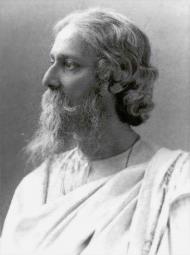The Symphony No. 9 in D minor, Op. 125 (sometimes known simply as "Choral"), is the final complete symphony of Ludwig van Beethoven (1770–1827). Completed in 1824, the symphony is one of the best-known works of the Western classical repertoire. Among critics, it is almost universally considered to be among Beethoven's greatest works, and is considered by some to be the greatest piece of music ever written.
The symphony was the first example of a major composer using voices in a symphony (thus making it a choral symphony). The words are sung during the final movement by four vocal soloists and a chorus. They were taken from the "Ode to Joy", a poem written by Friedrich Schiller in 1785 and revised in 1803, with additions made by the composer. Today, it stands as one of the most played symphonies in the world.
Premiere
Beethoven was eager to have his work played in Berlin as soon as possible after finishing it, since he thought that musical taste in Vienna was dominated by Italian composers such as Rossini. When his friends and financiers heard this, they urged him to premiere the symphony in Vienna.
The Ninth Symphony was premiered on 7 May 1824 in the Theater am Kärntnertor in Vienna, along with the overture The Consecration of the House and the first three parts of the Missa solemnis. This was the composer's first on-stage appearance in 12 years; the hall was packed. The soprano and alto parts were interpreted by two famous young singers: Henriette Sontag and Caroline Unger.
Although the performance was officially directed by Michael Umlauf, the theatre's Kapellmeister, Beethoven shared the stage with him. However, two years earlier, Umlauf had watched as the composer's attempt to conduct a dress rehearsal of his opera Fidelio ended in disaster. So this time, he instructed the singers and musicians to ignore the almost totally deaf Beethoven. At the beginning of every part, Beethoven, who sat by the stage, gave the tempos. He was turning the pages of his score and beating time for an orchestra he could not hear.
There are a number of anecdotes about the premiere of the Ninth. Based on the testimony of the participants, there are suggestions that it was under-rehearsed (there were only two full rehearsals) and rather scrappy in execution. On the other hand, the premiere was a great success. In any case, Beethoven was not to blame, as violinist Joseph Böhm recalled: "Beethoven directed the piece himself; that is, he stood before the lectern and gesticulated furiously. At times he rose, at other times he shrank to the ground, he moved as if he wanted to play all the instruments himself and sing for the whole chorus. All the musicians minded his rhythm alone while playing".
When the audience applauded—testimonies differ over whether at the end of the scherzo or the whole symphony—Beethoven was several measures off and still conducting. Because of that, the contralto Caroline Unger walked over and turned Beethoven around to accept the audience's cheers and applause. According to one witness, "the public received the musical hero with the utmost respect and sympathy, listened to his wonderful, gigantic creations with the most absorbed attention and broke out in jubilant applause, often during sections, and repeatedly at the end of them." The whole audience acclaimed him through standing ovations five times; there were handkerchiefs in the air, hats, raised hands, so that Beethoven, who could not hear the applause, could at least see the ovation gestures.
(photo source poesiaretro.blogspot.com)

